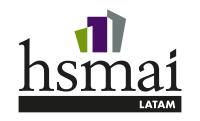The HSMAI Foundation recently published the study The State of Generative AI in Talent Management for Hotel Sales, Marketing, and Revenue Management, which explores the impact of generative artificial intelligence in various areas of talent management, with a special focus on Sales, Marketing, and Revenue Management. The document offers insights, data, and future-oriented perspectives essential for industry professionals to stay current. This excerpt was taken from the second section of the report, dedicated to professional development.
The hospitality industry is at a pivotal moment, as AI redefines traditional roles and competencies. Leaders need to balance the development of AI itself with the responsibility of guiding their organizations through this transformation. Two learning models have stood out: structured training frameworks and decentralized hands-on experimentation.
Hospitality companies have been most successful when they combine AI fundamentals, hands-on experience with tools, and continuous learning—all with the goal of developing adaptability, not necessarily absolute mastery of specific tools. By fostering a culture of constant growth and creating dynamic learning environments, organizations ensure their teams remain agile and capable in this ever-evolving hospitality landscape, amplified by the use of AI.
In this report, we address the following areas on how companies are promoting the use of Generative AI as part of their professional development:
- Role of Leadership in AI: Forward-thinking leaders are transforming their organizations by adopting a mindset AI-first, becoming leading learners and pioneers in strategies that balance innovation with responsible AI adoption.
- Structured Learning in AI Development: Traditional training programs are being adapted with initiatives such as AI Playgrounds and AI Immersion Workshops, to expand the use of AI by teams. However, this process presents significant organizational challenges.
- Organic Professional Development: This emerging model of learning has achieved success with new approaches, including AI champions, leaders as champions, reverse mentoring, among others.
- Organizational Challenges: Explores the key challenges organizations face in AI-focused professional development — and how frameworks innovative governance and AI Task Forces are helping businesses navigate these complexities, ensuring safe, effective, and ethical adoption of AI, while promoting innovation and adaptability.



